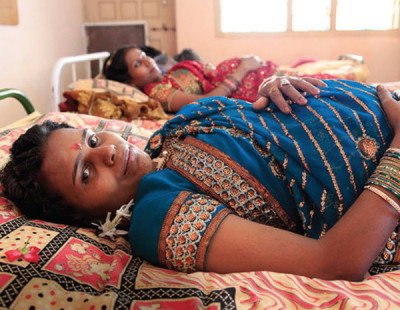Indian Surrogates Feel Hurt by Ban on Surrogacy for Foreign Couples

For thousands of childless couples the world over, India has been the go-to destination to fulfill their dreams of becoming parents, thanks to its well-trained doctors, well-appointed fertility clinics and vast numbers of poor women willing to serve as surrogate mothers.
Not anymore.
The Indian government recently banned surrogate services for foreigners and ordered fertility clinics to stop the practice of hiring Indian women to bear children for them. It's said to be intended to protect the women from exploitation, though some who have worked as surrogates say the ban actually hurts them.
"Becoming a surrogate mother is our one chance to build a house, or get a new roof. We earn more from one surrogacy than from 10 years of working as domestic help," said Tina Rajesh Chavan, speaking over telephone from Anand, a major hub of fertility clinics, in the western Indian state of Gujarat.
India was among the few countries in the world that allowed surrogacy — where a woman could be hired to carry the child of a couple through a process of in-vitro fertilization and embryo transfer.
India's home ministry has ordered Indian embassies abroad not to grant visas to couples visiting the country for surrogacy, or "reproductive tourism" as the practice has come to be known.
Though laws governing surrogacy have yet to be passed, the government outlined its position in an affidavit placed before the Supreme Court on Oct. 28. It said India "does not support commercial surrogacy and the scope of surrogacy is limited to Indian married infertile couples only, and not to foreigners." A previous order had already barred gay and unmarried couples and single people from hiring surrogates.
A government official, who spoke on condition of anonymity as he was not authorized to speak to the media, said the tightening of rules concerning surrogacy was to protect poor women from being exploited in the absence of legal safeguards.
Chavan, who served as a surrogate mother for two foreign couples, said her earnings through the two surrogate pregnancies ensured that her three children were able to complete their high school educations.
"Were it not for the surrogacy money, I would have had to pull them out of school," the 35-year-old said. She currently works as a nanny helping parents look after their newborn surrogate babies during the time they are waiting to obtain visas for the infants.
"This ban does not help anyone. It has closed the door for poor people like us to earn a little money," Chavan said.





